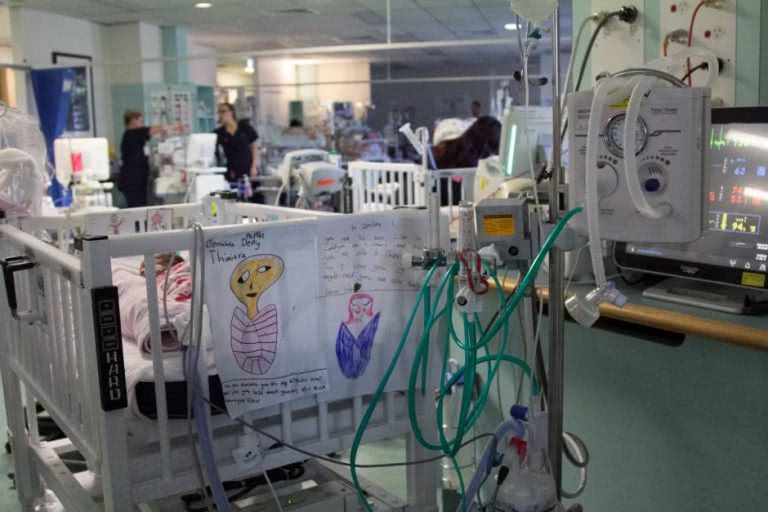Having a child is an intense and transformative experience for anyone.
But what happens when you’re given bad news at every turn? When every routine check-up and screening flags more issues. When you’re falling into smaller and smaller categories, it gets scary as fuck.
All throughout, your family, friends and work colleagues are hyping up the baby on the way. How are you feeling? Excited? Oh man who are you going to deal with nappies, crying, waking up all through the night, new responsibilities?
Right now I’m dealing with whether my child is going to be healthy or even survive this shit and my instincts to protect my partner are firing off right now and I feel like blasting you in the face, and I’m not a violent person. This is base evolutionary stuff.
The reality will be, people have no idea what kind of fucked up shit is going on in your private life. You’ve got no reason or interest to let them know what’s actually happening, so you need to deal with their positive excited bullshit constantly while you’re stressing.
Their comments are well intentioned. They’re not to know that something is going awry. But this is the care that should be taken around a pregnancy.
In the same way that it’s not advisable to ask a woman if she’s pregnant, don’t assume that everything is fine. Tread with empathy and care.
So you’ve been through it all. Made it to the point that your child is being born, but due to complications that might have been known in advance, they’re born into a high risk section of a hospital. In our case, our son was scheduled to be born at Royal Hospital for Women at Randwick.
Due to complications I’m not going to detail, he was born 10 weeks premature. We were there for six weeks before we brought the tiny man home.
Here’s a few of my impressions:
It was an exciting but stressful time
You’re a parent! That’s exciting, but there’s a level of grief that comes with seeing your child hooked up to machines. Moments like this you have to give absolute thanks for having access to public health care. I heard anecdotally that our six weeks at Randwick would’ve been worth a bill far above $50,000.
You’re surrounded by families in varying levels of distress, as some may have lost children during birth, and others are undergoing surgery. Somewhere amidst all of this is your own baby, wrapped in knitted blanket and beanie, their tiny torso exposed to lights and monitors.
I lived a dual life between work and the hospital
Because our complications were known ahead of time, I had carer’s leave from work for a couple weeks. That meant spending every day and night at the hospital with my partner and son. Once the leave was up, I returned to work and “normality” during the daytime before spending every night at the hospital.
We lived in Sydney’s inner-west and were constantly driving across to Randwick. The travel was particularly difficult for my partner, who was out there each morning to feed our son. By the time I’d arrive after work, we’d spend another few hours there before returning home. It was sad and difficult to leave our child in a hospital every night. You just want to get them home.
Days and night blur together
These are the longest days and weeks of your life. And this is before you even get your baby home to start the well known exhaustion and sleep deprivation of having an infant! It’s a constant stasis of routine and doctors doing their rounds.
We made lasting friendships with other parents
As time blurs and the weeks pass, neighbours in the intensive care become your mates. It starts to happen with chats in the break room making tea and watching movies. Empathising with each other and sharing progress towards taking your children home.
We made friends with a half dozen or so other parents who still get together for birthdays. My son’s neighbour from the bed next to his remains one of his best little friends, and we’ve been on camping, beach and cafe trips with their family. Lovely people and shared veterans of intensive care. It helps to have these friends who understand the experience from the inside.
We were lucky to live comparatively close to the hospital
Driving between Sydney’s inner-west and Randwick wasn’t an ideal daily picnic, but we met people there from regional NSW who’d needed to uproot their lives, taking time from work and businesses to relocate close by the hospital. This can have severe financial impact. Plus in this instance you’re removed from support networks, friends and family at home.
Parking costs are a monstrosity
Hospitals often have fraught relationships with private parking companies gouging the stressed and grieving people made to frequent the space for weeks. We learned the places blocks away where we could park for free. Without this, you’re facing $50+ per day at least. It’s disgraceful.
There are support groups for dads, though I didn’t use them
Pillars Of Strength is an example of a service for dads providing practical, financial and emotional support. They help with food, parking and accomodation funding. It’s also a support network for other dads who may be dealing with bereavement.
I was offered access to these kinds of services, along with counselling but my partner and I turned them down, which is a valid choice. To each their own. But if you feel like you need some guys to hang out with and have a chat outside of the intensive care blur, ask at your hospital.


































